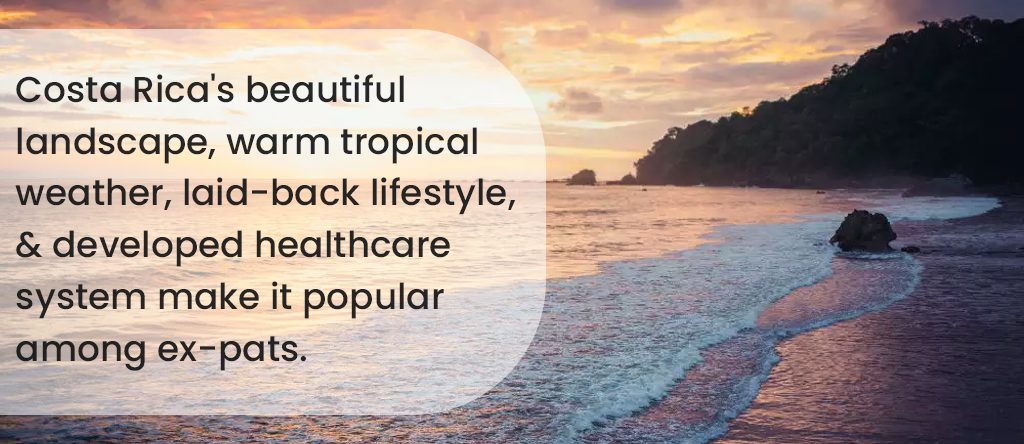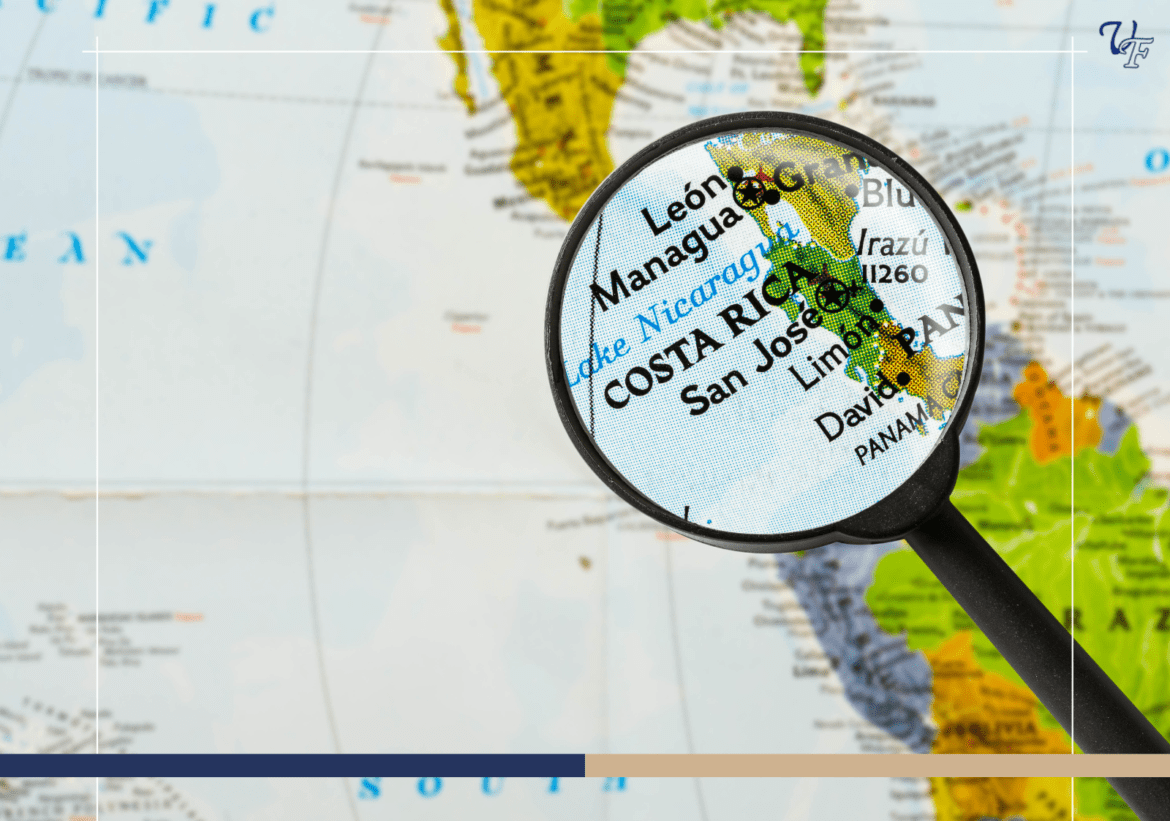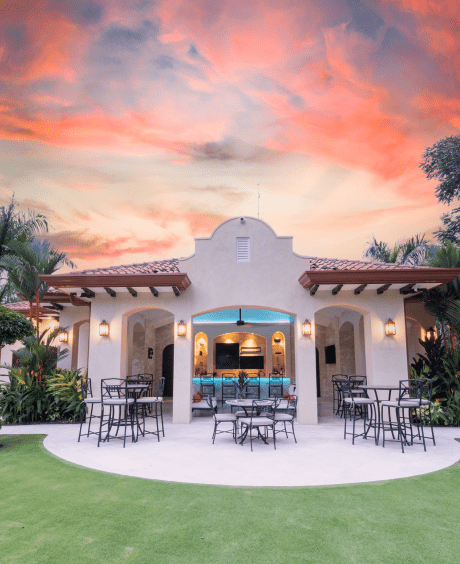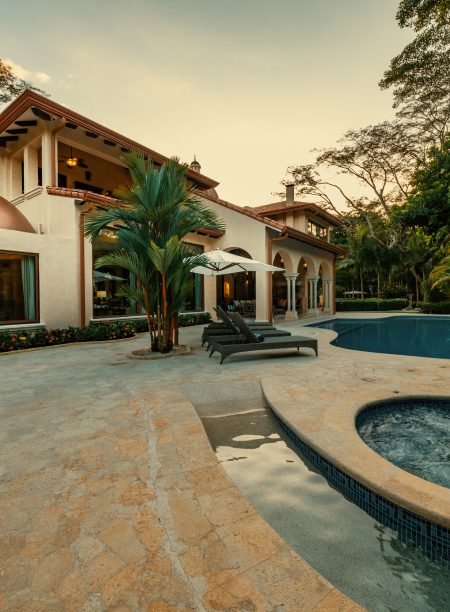Are you contemplating moving to Costa Rica? Let us help you decide. This Central American paradise has always been one of the best countries for ex-pats to live, study, and retire. Thanks to its surfable beaches, stunning natural surroundings, and incredible biodiversity, adventure enthusiasts also consider moving here. Overall, Costa Rica makes a perfect place to move to for a happy, healthy, and peaceful life.
If you plan to move to Costa Rica, you might need help understanding the country better. We have curated this ultimate guide to Costa Rica with essential things you should know before moving.

Life in Costa Rica
The World Economic Forum has listed Costa Rica among the happiest countries in the world. Families, retirees, and those pursuing education enjoy a high standard of living here, thanks to stunning beaches, scenic rainforests, a stable economy, and an educated populace. The Pura Vida way of living followed by the locals also contributes to the high quality of life for which Costa Rica is recognized worldwide.
Moreover, the beautiful landscape, laid-back lifestyle, warm tropical weather, vibrant fiesta season, and developed healthcare systems make this Central American country a highly sought-after place for ex-pats.
People of Costa Rica
Costa Rica has a diverse population due to the considerable number of residents from America and Europe living here. The native Costa Rican population makes up about 2.4% of the total. Together with the native Ticos, most ex-pats living here are retirees, primarily from North America and Canada. Also, as Costa Rica is home to some international schools where children can get quality education, most families choose to move here.
As we have already mentioned that the Costa Rican population is diverse, i.e., the population is comprised of eight different indigenous groups named –
- Cabécares
- Bribri
- Ngäbe
- Térrabas
- Boruca
- Huetares
- Maleku
- Chorotegas
Also, Costa Ricans constitute –
- European – 45.6%
- Amerindians – 33.5%
- African – 11.7%
- Asian – 9.2%
These are some of the interesting facts about Costa Rica. As far as the locals of Costa Rica are concerned, their nature is one of the driving factors why it is one of the most famous tourist destinations worldwide. Local Costa Ricans, AKA Ticos, are incredibly kind, supportive, and well-educated. They believe in the “work to live” over the “live to work.” If you ever meet a Tico, you will experience a laid-back vibe because they believe in enjoying nature, spending time with their friends and family, and focusing on leading a health- and goal-oriented lifestyle.
Safety in Costa Rica
Although Costa Rica is a safe country, due to criminality, the U.S. Department of State encourages you to proceed with greater caution. Some crucial safety measures include:
- Being aware of your surroundings
- Not showing off your money in public
- Not putting up a fight when someone tries to rob you
The best way to handle thefts and other crimes in the country is to contact a nearby police station.
Education in Costa Rica
The schools and universities in Costa Rica are among the best in Latin America. Ex-pats moving here with children or planning to start a family will be impressed with the education system. You must choose between public, private, and international institutions to find the best school for your child. You can consider any of them if your children are fluent in Spanish. Otherwise, you can choose between private and international schools. Fortunately, the quality of education in all schools remains consistent. Some advantages of attending a private or international school are smaller class sizes, more extra-curricular activities, and flexibility if you have Costa Rican residency.
Schooling in Costa Rica
Unlike other popular vacation spots, Costa Rica is a luxury vacation destination in the world, having a top-notch educational system that attracts families from abroad. The country emphasizes education and human development and has some of the best schools in Latin America. In the Central Valley, particularly in San Jose, private and foreign schools are the most popular where children can get quality education.

Weather in Costa Rica
Every year, many visitors and immigrants rush to Costa Rica for a vacation because of the country’s warm, tropical weather. The dry and rainy seasons are the two major seasons here. The wettest months are typically from May to November, with the most precipitation occurring in September and October. The months from December to April are considered the driest months. The average yearly temperature in Costa Rica ranges from 70 to 81 degrees Fahrenheit, making it a comfortable place to have a home.
Long story short, every season is the best time to visit Costa Rica, and if you are planning to make Costa Rica your home away from home, you will love its tropical weather.
Healthcare in Costa Rica
The quality of Costa Rica’s medical staff and facilities will impress everyone planning to settle in the country. Costa Rica offers some of the best healthcare facilities in Latin America, claims International Living. The public and private healthcare systems are available to ex-pats in the nation. Top-notch healthcare services are affordable to those in the United States. Healthcare expenses range from “approximately a third to a fifth of what you’d pay in the U.S.”
Cost of Housing in Costa Rica
Even though home costs vary based on the city and town, Costa Rica’s housing market is quite reasonable. As per Global Property Guide, “The most expensive real estate in Costa Rica is said to be found “in the Central Valley, the wider urban areas including San Jose, Alajuela, Heredia, and Escazu, where most enterprises are, and the Pacific coast.”
Cost of Living in Costa Rica
The cost of living in Costa Rica is far less than in the United States. Compared to the United States, consumer, rent, restaurant, and food expenses are all significantly lower in Costa Rica. According to International Living, a well-known publication that lists the finest places in the world to live, retire, vacation, and invest, “ex-pats from the United States, Canada, and Europe spend less money in Costa Rica than they do in their own countries.” According to the magazine, “many elderly couples live well on $2,000 a month and much better on $2,500 to $3,000.” While “a single person can live on between $1,400 and $1,700 a month.”
Of course, different lifestyle choices will affect the cost of living differently. Although those who live in popular tourist areas might expect to pay extra, foreigners will discover that the country is quite reasonable. Costa Rica is also on the list of the best places to retire in the world. Moreover, you will find several practices followed for sustainable and regenerative tourism in Costa Rica to reduce carbon footprints.

Average Costs Breakdown (per month) (2022 Updated)
Lifestyles differ according to the clothing items purchased, modes of transportation used, and eating habits. When all the everyday expenses are considered, we can calculate how much money is required to live comfortably in Costa Rica. Here, we have presented a graphical representation of the average breakdown of the cost of living in Costa Rica for you to understand how much you might spend after moving to Costa Rica.

Where to Live in Costa Rica?
Costa Rica is a small nation; its entire area would fit inside the state of Florida 3.5 times. According to the history of Costa Rica, even though over half of the contry is protected natural areas, you may still find low-density areas with 5,000,000 inhabitants, of which almost a million are foreigners from Nicaragua.
The cities and towns listed below are the popular locations ex-pats can consider living in.
- Guanacaste: This area, which borders Nicaragua in the north, is home to several gorgeous beaches crowded with visitors during summer. Guanacaste is a fantastic location, especially if you are an avid golfer who enjoys beach life.
- The Central Valley: The Great Metropolitan Area of San Jose, one of Costa Rica’s most populous and cosmopolitan regions, is the country’s most suitable area to have a home. Communities like Escazu and Santa Ana will be your neighborhoods, where you can find many trendy shopping complexes and commercial activity stores like suburban California.
- Jacó Town: This beach town is popular with visitors who love to party in American-style pubs and casinos and love surfing. There are some incredible beach resorts in the region that are perfect for spending quality time with your family and friends away from the hustle and bustle of life. You can also enjoy exotic flora and fauna in Costa Rica here, which will relax your mind and soul.
- The Southern Pacific: Following Jaco Beach to the south, you can find fantastic beach villages like Dominical, Quepos, Uvita, and Ojochal. You can engage in various activities here, including hiking, whale viewing, ocean kayaking, and more. These communities have a decent quality of life. You can find two popular and well-educated communities in the east, Perez Zeledon and San Isidro, where educated foreigners can live comfortably in the suburbs for a decent cost.
- Tamarindo: Tamarindo, one of the world’s most stunning beach communities, is on Costa Rica’s Pacific Coast. The city is a prime vacation spot for those who enjoy the beach, surfing, and wildlife. Additionally, bars, restaurants, and a thriving nightlife scene are available to young immigrants. Tamarindo is also the perfect spot to enjoy breathtaking sunsets in Costa Rica.
- Los Sueños Resort and Marina: The Los Sueños Resort and Marina is an upscale coastal community recognized for its opulent 5-star resorts and the breathtaking La Iguana Golf Course, showcasing stunning mountains and sea views. The beautiful Bahía Herradura Beach features golden sand, palm trees and mangroves, and a harbor that offers fantastic opportunities to enjoy sportfishing tournaments in Costa Rica. In addition, there is a well-known shopping mall and several cafes and restaurants, including a steakhouse that makes Los Sueños the finest place to live in Costa Rica.
Pros and Cons of Moving to Costa Rica
Many ex-pats worldwide consider Costa Rica one of the top places to have a home. But for ex-pats, knowing the pros and cons of moving to Costa Rica beforehand is essential.
| Pros | Cons |
| Costa Rica is a Blue Zone. | The slower pace of life may only be for some. |
| Chance to enjoy year-round warm weather. | Excessive rain during the “rainy season.” |
| Costa Rica is a paradise on earth. | In September and October, Costa Rica may experience all-day rain. |
| It is located close to the U.S. | Many of the roads are in poor condition. |
| Excellent medical care and amenities are available here. | Due to the tropical climate, there are many insects and other animals. |
| There are numerous outdoor activities available to indulge in. | It is usual to have several days of intense heat between 90 and 100 degrees. |
| Healthcare in Costa Rica is not free but affordable. | You may have to wait months for specialty care, such as surgery. |
| Costa Rica has affordable flights to and from many major cities. | You have limited ways to get to Costa Rica. The rainforests and waterfalls are mostly accessible via helicopter or boat. |
| In much of Costa Rica, tap water is safe for consumption. | Theft is common in Costa Rica, especially on the beach or in remote locations. |
| Costa Rica has an abundance of beach space for relaxation. | The primary language is not English, but locals at popular tourist spots can communicate efficiently in English. |

Top Reasons to Move to Costa Rica
If you are still trying to understand why you should move to Costa Rica, these reasons might help you make the right decision.
- The Affordable Cost of Living: The low cost of living in Costa Rica is one of the draws for foreigners, including retirees and students. Most people in Costa Rica can live on just $2,000 each month.
- The Pura Vida Way of Living: The “Pura Vida” lifestyle of Costa Rica is all about living a simple, health-conscious life. A Pura Vida lifestyle means embracing complete physical and mental well-being by consuming nutritious food, indulging in recreational activities, enjoying picturesque surroundings, and leading a slower pace of life. Moving to Costa Rica can be the best option to escape the hustle and bustle and live peacefully.
- The Warm, Tropical Climate All Year Long: Costa Rica in Central America experiences pleasant weather all year long, which is ideal for someone who likes to spend as much time as possible outside. The country’s most stunning locations can be seen and visited throughout the year because of the tropical weather loved by all.
- The Life Expectancy is Above Average: Top-notch medical services, high-quality healthcare facilities, and public health initiatives are only a few of the factors that contribute to Costa Ricans’ long lives. The credit for exceptional long lives goes to the nation’s healthy diet, fresh and organic fruits and vegetables, and plenty of sunshine rich in vitamin D.
- Countless Outdoor Recreational Activities: The abundance of outdoor recreational activities in Costa Rica will meet your demands if staying active and fit are your priorities. The stunning nature of the nation serves as the ideal setting for various enjoyable activities. Ziplining, sailing, snorkeling, scuba diving, boating, hiking, riding, paddle boarding, kayaking, and fishing are popular outdoor activities.
Conclusion
Ex-pats settled permanently in Costa Rica are estimated to make up 10% of the country’s population. Another 10% of ex-pats travel back and forth from their home countries as seasonal tourists, migrant workers, or to renew their tourist visas. Costa Rica is a luxury vacation destination and could be your perfect new home away from home, where you can enjoy a relaxing, stress-free, and celebrity-like lifestyle.
So, what do you think about Costa Rica – Your Second Home?

Frequently Asked Questions
Q. What are the things to know before moving to Costa Rica?
Before moving to Costa Rica, it’s essential to consider several key factors. These include residency requirements, cost of living, language, healthcare, culture, climate, and safety.
Q. Is moving to Costa Rica a good idea?
Whether or not moving to Costa Rica is a good idea. Costa Rica has much to offer, including beautiful natural landscapes, warm tropical weather, and a laid-back lifestyle. Additionally, moving to Costa Rica could be a great choice if you’re looking for a new adventure and are willing to adapt to a different way of living.
Q. What is the official language spoken in Costa Rica?
The official language of Costa Rica is Spanish. However, many locals and ex-pats speak English, especially in tourist areas. Knowing basic Spanish can help you enjoy daily life and fully immerse yourself in the culture.
Q. What are the requirements to move to Costa Rica?
The specific requirements to move to Costa Rica can vary depending on your country of origin and the residency type you seek. However, some common requirements include the following –
- A valid passport
- A background check
- Proof of income or financial stability
- A medical exam
Q. Is it safe to live in Costa Rica?
Costa Rica is generally considered a safe place to live, with a lower crime rate than other countries. However, pickpocketing and vehicle theft can occur in crowded places, so taking precautions like keeping valuables out of sight and not leaving belongings unattended is essential.
Q. What are the safest places to live in Costa Rica?
Here are some of the safest areas to live in Costa Rica:
- Escazú
- Santa Ana
- Ciudad Colón
- Arenal
- Tamarindo
- Nosara
- Puerto Viejo
Q. What is the cost of living in Costa Rica?
Compared to the United States, the cost of living in Costa Rica is much lower, including consumer goods, rent, and food expenses. International Living reports that ex-pats from the US, Canada, and Europe spend less money in Costa Rica than in their own countries. Elderly couples can live well on $2,000 a month, while single people can live well on between $1,500 and $2,000 monthly.











